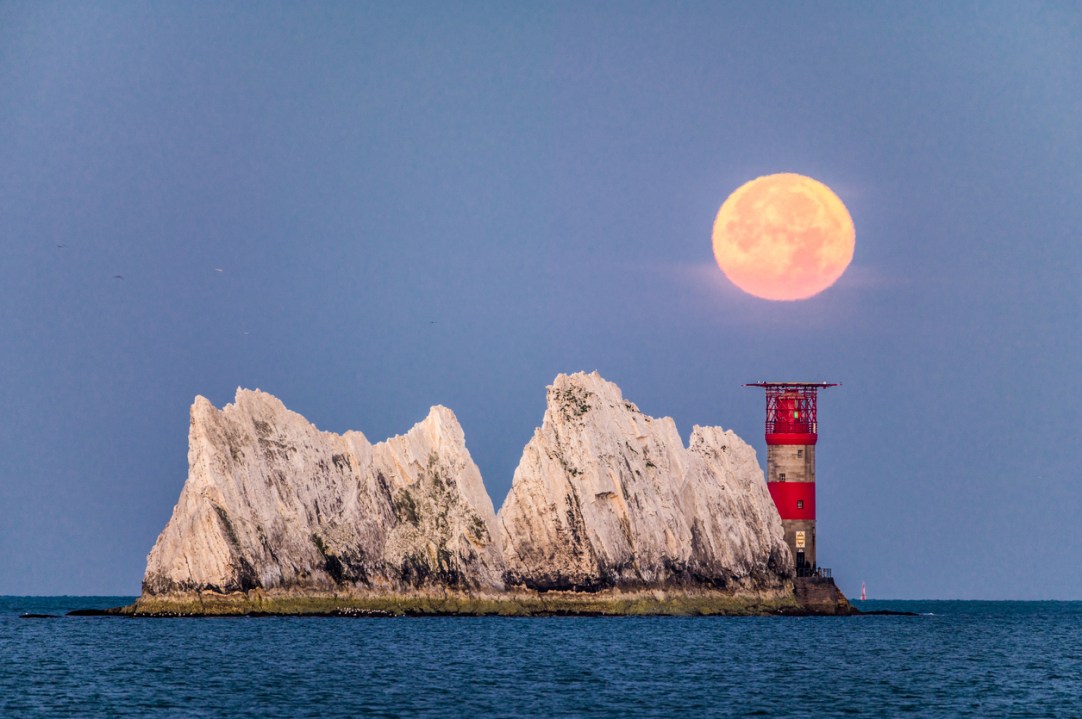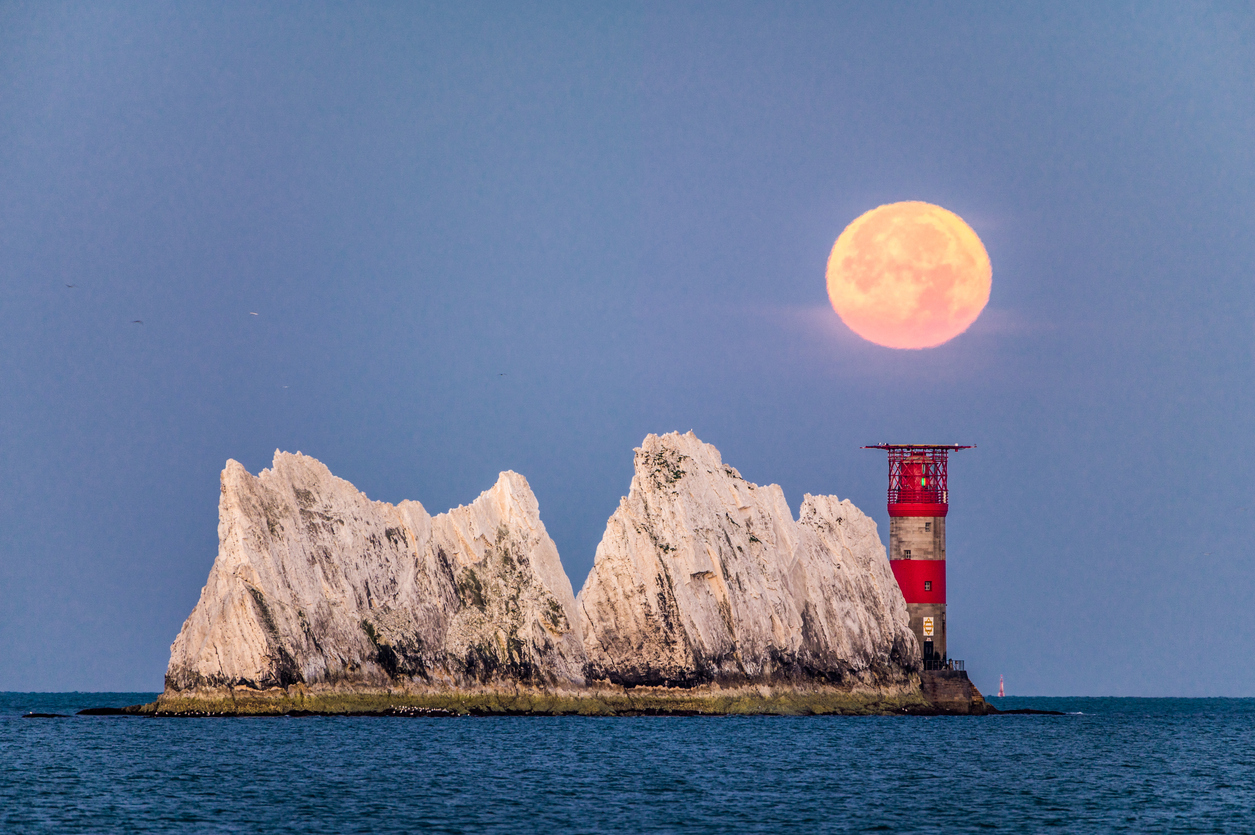‘August for the people and their favourite islands,’ wrote W.H. Auden. My own favourite island in Britain is the Isle of Wight, even though my introduction to it was less than ideal. I was seven years old and had been sent to the island for the ritual initiation for British middle-class males of my generation: immersion in a boarding school with around 50 other pre-pubertal boys.
I was, in fact, the youngest boy in the school and this was the first time I had left home. I have already written in these pages about my five years at a boarding school on the island; bizarre and bewildering rather than the hell of paedophilia and punishment described by others writing about their prep school days. But I want to convey here the curious charm of the island itself.
Famously, the Isle of Wight, though only a mile or so off bustling southern England, is marooned in a genteel time warp that keeps it at least half a century behind the rest of the country. You can still find Wimpy bars and National petrol stations with their head-of-Mercury logos on the island, decades after they have disappeared elsewhere in England.
Before they discovered the Costa Brava, the English used to take their summer holidays on the island, with its chalk cliffs, yellow-sanded beaches, tea shops and ubiquitous yachts; a fact recorded by the Beatles on their Sergeant Pepper album when they hymned the joys of renting a cottage there when they were 64.
The resort of Ventnor on the south-east coast of the island has a balmy microclimate, making it England’s sunniest spot, which drew the Victorians there in droves. Elgar spent his honeymoon here, and the exiled Russian novelist Turgenev was a regular visitor, along with Karl Marx, who enjoyed bourgeois seaside holidays in Ventnor along with the rest of the class he so despised.
Just up the coast from Ventnor is Shanklin, visited by the doomed genius John Keats, and across the island to the west is Farringford House, now a hotel, the retirement home of another poet, Alfred, Lord Tennyson. A less reputable Victorian bard, Algernon Charles Swinburne, also loved the island and is buried in Bonchurch churchyard despite his atheism. Swinburne appropriated the name of another island village, Whippingham, for his little-known erotic work The Whippingham Papers in which he wrote of the joys of sado-masochism, inculcated in him by the beatings inflicted during his education at Eton.
Whippingham is close to Osborne, the coastal village where Queen Victoria and her husband Albert built their Italianate villa, Osborne House, where the monarch spent her happiest times and where she died in 1901. After her death, Osborne briefly became a naval college, and in 1910 was the scene of a famous Edwardian miscarriage of justice when a cadet, George Archer-Shee, was wrongly accused by the Admiralty of stealing a postal order. The cause célèbre was dramatised by Terence Rattigan in his play and film The Winslow Boy, which does not mention the eponymous boy’s real-life fate. Never readmitted to the navy, George joined the army instead and was killed at Ypres in 1914.
Another sovereign had a more trying time on the island than Victoria. King Charles I was imprisoned at Carisbrooke Castle after losing the civil war in the 1640s. He made a couple of unsuccessful escape attempts before being dragged off to the mainland to be executed. The pious monarch also had his only recorded adulterous affair here, with a Royalist named Jane Whorwood.
The Isle of Wight is marooned in a genteel time warp that keeps it half a century behind the rest of the country
These days the island’s prisoners are housed near Carisbrooke in Parkhurst and Albany jails. Current inmates include Radovan Karadzic, the psychiatrist who led the Bosnian Serbs during the savage wars in former Yugoslavia in the 1990s, and who was later jailed for life for war crimes by the International Court at The Hague.
In the 1970s the island became the venue for Britain’s first mass rock festivals. Bob Dylan was one of the first to feature, and both Jim Morrison and Jimi Hendrix gave their swan songs here before their deaths. Despite its old-fashioned ways, the island has always had a technological cutting edge: the hovercraft was developed here, and still wafts passengers across the Solent, while Shanklin was the place from where Pluto – the pipeline under the ocean – pumped vital fuel to the D-day beaches in Normandy in 1944. The matron at my prep school tearfully recalled how, as a wartime nurse, she had escorted and comforted a desperately wounded GI to an island hospital by ambulance on D-day – only to see him die on arrival.
So much for the Isle of Wight. Today, sun-seeking Brits are more often found on the beaches of one of the many islands around Greece. I too joined the throng when I discovered the island of Skyros, set in the Aegean Sea, in 1993. I was researching my biography of the poet Rupert Brooke, who died of septicaemia on a troopship moored off the island en route to the bloody beaches of Gallipoli in 1915. Brooke is buried in a lonely olive grove on Skyros.
I signed up for a writing seminar tutored by the novelist D.M. Thomas at the Skyros Centre, a holistic, hippyish home of New Age courses with such titles as ‘Finding Your Child Within’ or ‘Accept Life at Any Risk’ (is there an alternative?). It sounds pretentious and awful but is actually quite charming, and the island setting adds to a Prospero-style magic so potent that I have returned on four subsequent occasions.
Not overrun by tourists like more fashionable islands such as Mykonos and Hydra, Skyros, as befitting the birthplace of Achilles, retains the ambience of classical Greece. The car-less, cobbled streets of its tiny capital, Choros, are lined with tavernas, and its safe, sandy beaches are refreshingly empty. By coincidence, the UK HQ of the Skyros Centre, with its slogan ‘Holidays you can take home with you’, is located in Shanklin – neatly bringing together my two favourite islands.








Comments